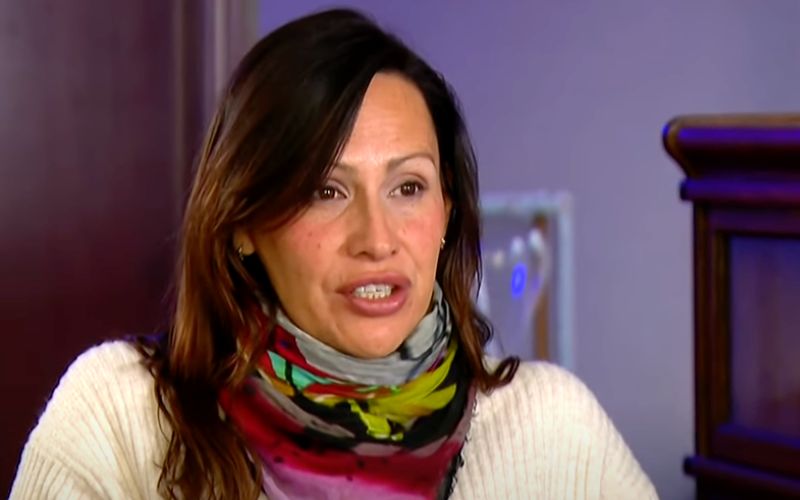
- Details
- By Elyse Wild
Nina Sanders (Apsáalooke) filed suit on May 14 in an Illinois court against the Chicago Blackhawks organization, alleging she was the victim of sexual harassment and fraud during her employment.
When Sanders was hired as an independent contractor by the Blackhawk Organization in 2020, the team was mired in criticism following an announcement from the Washington Redskins that they would retire their name and logo.
According to the lawsuit, Daniel Wirtz, Blackhawks chairman and CEO, reached out to Sanders, offering her the position of liaison between the team and the Native American community. Wirtz made several promises to entice Sanders to accept the role, including hiring Native Americans, educating employees on Black Hawk, a Sauk leader, facilitating landback to the Sac and Fox Nation, and changing the team’s logo.
In the lawsuit, Sanders states that none of these promises were fulfilled and that Wirtz “only intended on the Organization benefiting from their association with Ms. Sanders, as her standing and reputation in the Native American community.”
The suit alleges that shortly after Sanders began employment with the Blackhawk Organization in Septemeber 2020, her direct supervisor told her not to communicate matters such as sexual harassment in written form, such as email; rather, she should communicate such complaints through telephone or in person.
The lawsuit details several allegations of sexual harassment and assault toward Sanders and other women in the organization by two men associated with the team. One alleged incident involved an agent for the team sending Sanders sexually explicit videos of him masturbating on Snapchat; another in which he grabbed her arm and insisted he come to her room.
The suit alleges that in November 2022, a Blackhawks dancer approached a woman and a private suite at the United Center and groped her. The woman, Sanders says, previously filed a police report against the dancer alleging he raped her. In another alleged incident, a man associated with the team sexually assaulted an employee. Sanders puts forth that none of the complaints were investigated by the Blackhawks organization or reported to the police.
Following Sanders complaints of the incidents to her direct supervisor, she was moved out of team’s headquarters at Chicago’s United Center to a different location.
In June 2023, Sanders’ contract was terminated when, while an extension of her contract was being negotiated, she reassurted her allegations of harrasment and asked the organization how it planned to address the complaints.
“support specific initiatives in partnership with the Sac & Fox Nation and other Native American communities” and that “the organization had noted operational issues in her work, and had received feedback from external partners that they did not want to continue to work with her.”
According to the New York Times, the Blackhawk’s organization issued the following statement in response to the allegations:
“The Chicago Blackhawks have a zero-tolerance policy for misconduct and take allegations of harassment in the workplace very seriously,” one of the team’s statements read. “In response to Ms. Sanders’ allegations, the organization immediately conducted a thorough investigation with the assistance of outside counsel, including interviews with internal and external parties, and review of pertinent materials and digital records. Based on the information available to us, we found insufficient evidence to substantiate her claims. Of note, the persons identified by Ms. Sanders in your question are not, and have never been, independent contractors with nor employees of the Chicago Blackhawks.”
More Stories Like This
Native News Weekly (August 25, 2024): D.C. BriefsUS Presidents in Their Own Words Concerning American Indians
This Day in History — Dec. 29, 1890: Hundreds of Lakota Killed During the Wounded Knee Massacre
Monday Morning (December 29, 2025): Articles You May Have Missed This Past Weekend
Native News Weekly (December 28, 2025): D.C. Briefs
Help us defend tribal sovereignty.
At Native News Online, our mission is rooted in telling the stories that strengthen sovereignty and uplift Indigenous voices — not just at year’s end, but every single day.
Because of your generosity last year, we were able to keep our reporters on the ground in tribal communities, at national gatherings and in the halls of Congress — covering the issues that matter most to Indian Country: sovereignty, culture, education, health and economic opportunity.
That support sustained us through a tough year in 2025. Now, as we look to the year ahead, we need your help right now to ensure warrior journalism remains strong — reporting that defends tribal sovereignty, amplifies Native truth, and holds power accountable.
 The stakes couldn't be higher. Your support keeps Native voices heard, Native stories told and Native sovereignty defended.
The stakes couldn't be higher. Your support keeps Native voices heard, Native stories told and Native sovereignty defended.
Stand with Warrior Journalism today.
Levi Rickert (Potawatomi), Editor & Publisher


